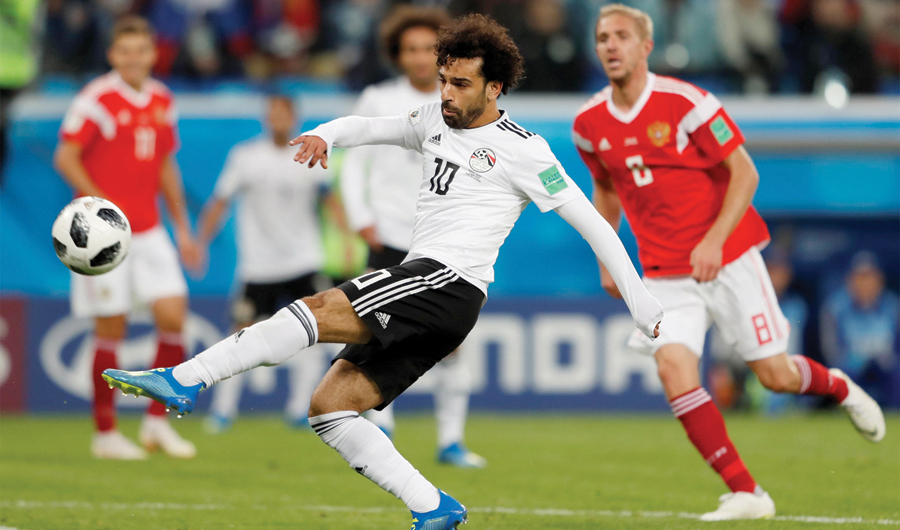CAIRO : Egyptian-born Liverpool striker Mohamed Salah is a hero to football fans around the world, and a source of pride for his fellow countrymen and people across the Arab world.
But his high profile is a far cry from his humble origins, and Arab News spoke to his father to learn more about the player’s upbringing and what made him into a star.
“Mohamed grew up in a simple family and has two siblings. The financial condition of the family made it difficult for him to enrol at a proper university,” Salah Ghali told Arab News.
“He was complaining about traveling for four hours to go by train but I told him that all the stars in the world went through this tough experience before. I always reminded him of his trip from his village Najrij in the center of Bassioun in Gharbia province to Cairo, where the Arab Contractors Club was located. I always gave him advice and support, especially after moving from an Arab country to Europe.”

Mohamed Salah's father (L) - (Supplied)
Life in Europe was different in so many ways from what Salah experienced growing up, he added, and that is why he encouraged his son to develop his skills on the pitch and fight to achieve his goals off it.
The forward liked doing charity work, said Ghali. Two projects — an education institute and an ambulance unit — have been completed in his village and will open in June.

Mohamed Salah has won many awards including the Golden Boot, Player of the Year and the FIFA Puskas award. (File/Reuters)
Ghali previously said the player had refused external funding, instead paying for the work out of his own pocket.
The Azhari Institute, in Najrij, was one of Salah’s dreams. He had worked hard to achieve his dream of serving people from his village as they lacked easy access to education, Ghali explained.

Mohamed Salah with his father Galih. (Supplied)
“The Mohamed Salah Charity Foundation helps people in the village and neighboring villages. When the youth minister met me in his office and told me that a museum would be established in my son’s name I felt happy and proud, and thanked God so much. I feel very happy when I see my son on television. Everyone praises his performance and applauds him,” he said.
Last month he was named in Time magazine’s 100 most influential people of 2019.

Salah (second left, top row) with friends growing up. (Supplied)
The footballer was listed in the “Titans” section of the list and was championed by British comedian and US TV host John Oliver.
“Mohamed Salah is a better human being than he is a football player. And he’s one of the best football players in the world,” Oliver said of the Egyptian.

A young Mohamed Salah with friends. (Supplied)
“Mo is an iconic figure for Egyptians, Scousers and Muslims the world over, and yet he always comes across as a humble, thoughtful, funny man who isn’t taking any of this too seriously.”
The player has won many awards including the Golden Boot, Player of the Year and the FIFA Puskas Award.














